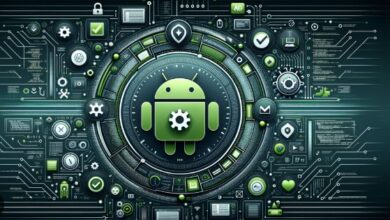Building an App with ChatGPT: Transforming Conversations into Experiences

In today’s digital age, conversational AI has become increasingly prevalent, revolutionizing the way businesses interact with their customers. One of the most innovative and versatile tools in this domain is ChatGPT, a powerful language model developed by OpenAI. In this article, we’ll explore how you can harness the capabilities of ChatGPT to build an app with chatbot application that delivers exceptional user experiences. Additionally, we’ll discuss the role of chatbot development companies in bringing your vision to life.
Understanding ChatGPT
ChatGPT, based on OpenAI’s GPT (Generative Pre-trained Transformer) architecture, is a state-of-the-art natural language processing model capable of generating human-like text based on the input it receives. Trained on vast amounts of text data from the internet, ChatGPT excels at understanding context, generating relevant responses, and engaging in meaningful conversations across a wide range of topics.
Key Features and Capabilities of ChatGPT:
- Natural Language Understanding: ChatGPT can comprehend and interpret natural language input, allowing users to converse with the chatbot in a manner that feels intuitive and conversational.
- Contextual Responses: ChatGPT maintains context throughout the conversation, enabling it to generate responses that are contextually relevant and coherent, enhancing the user experience.
- Multi-Turn Dialogue: ChatGPT supports multi-turn dialogue, meaning it can remember past interactions and respond accordingly, creating a seamless conversational flow.
- Customization and Fine-Tuning: Developers can fine-tune ChatGPT to suit specific use cases and domains, ensuring that the chatbot’s responses align with the goals and requirements of the application.
Building an App with ChatGPT
Now let’s discuss how you can leverage ChatGPT to build an app that leverages conversational AI:
- Define Your Use Case: Start by defining the purpose and scope of your chatbot application. Determine the specific tasks or functions you want the chatbot to perform, whether it’s customer support, virtual assistance, or content recommendation.
- Design Conversation Flows: Design the conversation flows and user journeys that your chatbot will support. Map out the different dialogue paths and decision points, considering various user inputs and possible responses from the chatbot.
- Integrate ChatGPT: Integrate ChatGPT into your application using the appropriate APIs or SDKs provided by OpenAI. Configure the chatbot to receive user inputs, process them using ChatGPT, and generate relevant responses based on the context of the conversation.
- Enhance User Experience: Focus on enhancing the user experience by implementing features such as natural language understanding, context retention, and personalized responses. Ensure that the chatbot interacts with users in a manner that is engaging, informative, and helpful.
- Test and Iterate: Test your chatbot application thoroughly to identify any bugs, errors, or usability issues. Gather feedback from users and iterate on the design and functionality of the chatbot to improve its performance and effectiveness over time.
The Role of Chatbot Development Companies
Chatbot development companies play a crucial role in helping businesses build and deploy chatbot applications effectively. These companies offer expertise in natural language processing, machine learning, and software development, enabling them to create custom chatbot solutions tailored to the unique needs of their clients.
Key Services Offered by Chatbot Development Companies:
- Consultation and Strategy: Chatbot development companies provide strategic guidance and consultation to help businesses define their chatbot objectives, identify use cases, and develop a roadmap for implementation.
- Custom Chatbot Development: These companies specialize in developing custom chatbot solutions from scratch, leveraging advanced AI technologies such as ChatGPT to deliver intelligent and engaging conversational experiences.
- Integration and Deployment: Chatbot development companies assist businesses in integrating chatbot solutions into their existing systems and platforms, ensuring seamless interoperability and data exchange.
- Training and Fine-Tuning: These companies train and fine-tune chatbot models to optimize their performance and effectiveness for specific use cases and domains. They continuously monitor and update the chatbot to improve its capabilities over time.
- Maintenance and Support: Chatbot development companies offer ongoing maintenance and support services to ensure the reliability, performance, and security of chatbot applications. They provide timely updates, bug fixes, and enhancements to keep the chatbot running smoothly.
In conclusion, ChatGPT presents exciting opportunities for businesses to build innovative chatbot applications that deliver personalized and engaging user experiences. By partnering with chatbot development companies, businesses can leverage the expertise and resources needed to bring their chatbot visions to life effectively. Whether you’re looking to enhance customer support, automate tasks, or drive engagement, ChatGPT-powered chatbots offer a powerful solution to meet your business needs in today’s digital landscape.





